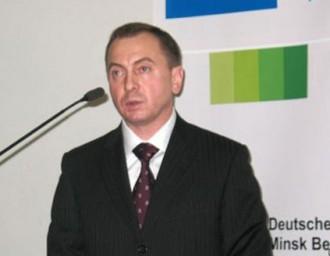Uladzimir Makei’s visa ban will not be discussed at the EU Summit

The ban to enter countries of the EU for Belarusan Foreign Minister is not on the agenda of a two-day meeting in Brussels.
Maya Kocijancic, spokesperson of High Representative of the Union for Foreign Affairs and Security Policy Catherine Ashton has informed about it, reports Euroradio. The European Council is planning to discuss the long-term budget of the EU and "Arab spring" issues instead.
There will be no changes in the status of the Belarusan Minister of Foreign Affairs blacklisted by the EU, Ashton's spokesperson noted.
Let us recall that Uladzimir Makei was put on the EU black list on January 31, 2011. He was the head of the President's Administration at that moment. He was appointed Foreign Minister of Belarus in August, 2012 and continues to hold office.
-
03.01
-
07.10
-
22.09
-
17.08
-
12.08
-
30.09








































